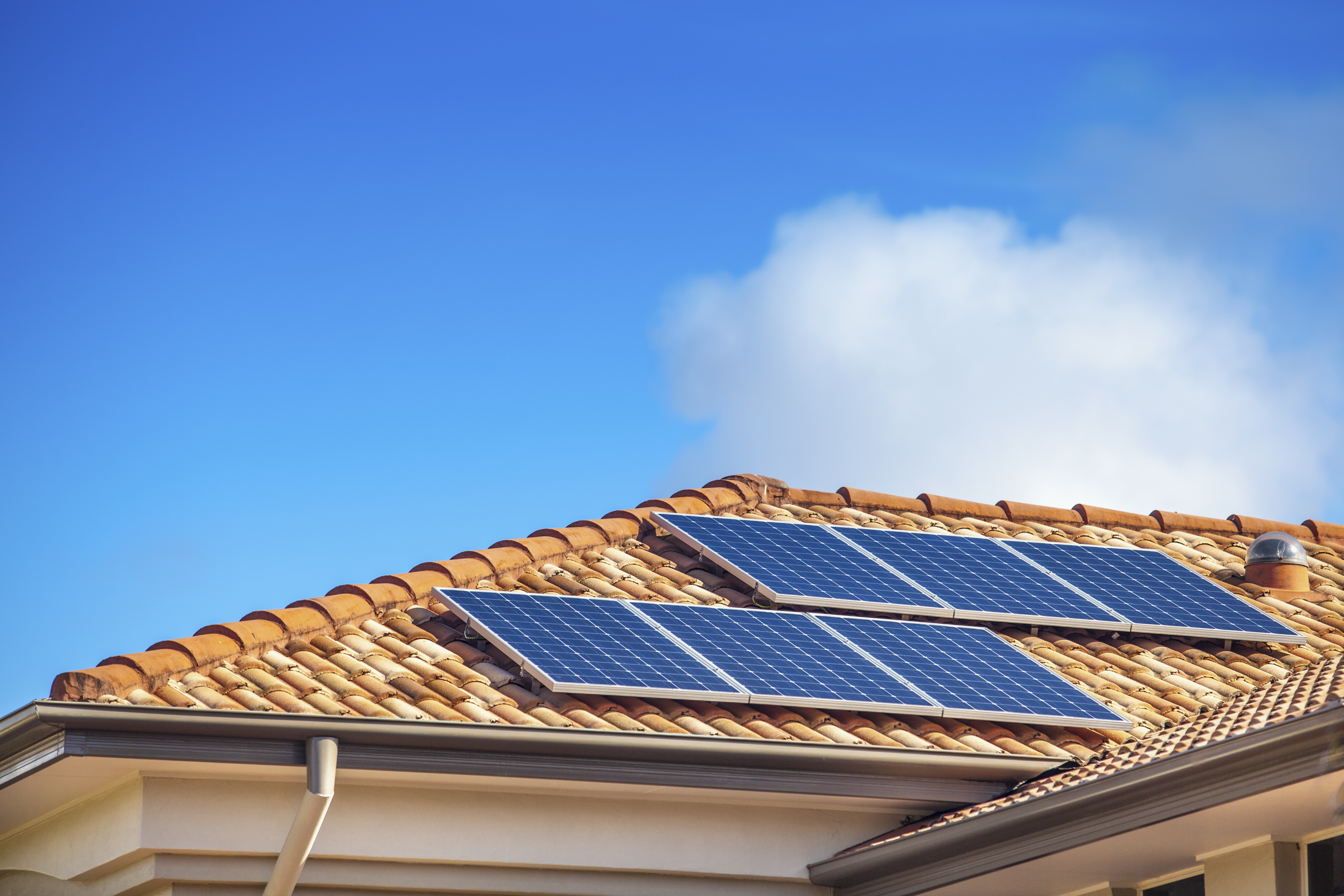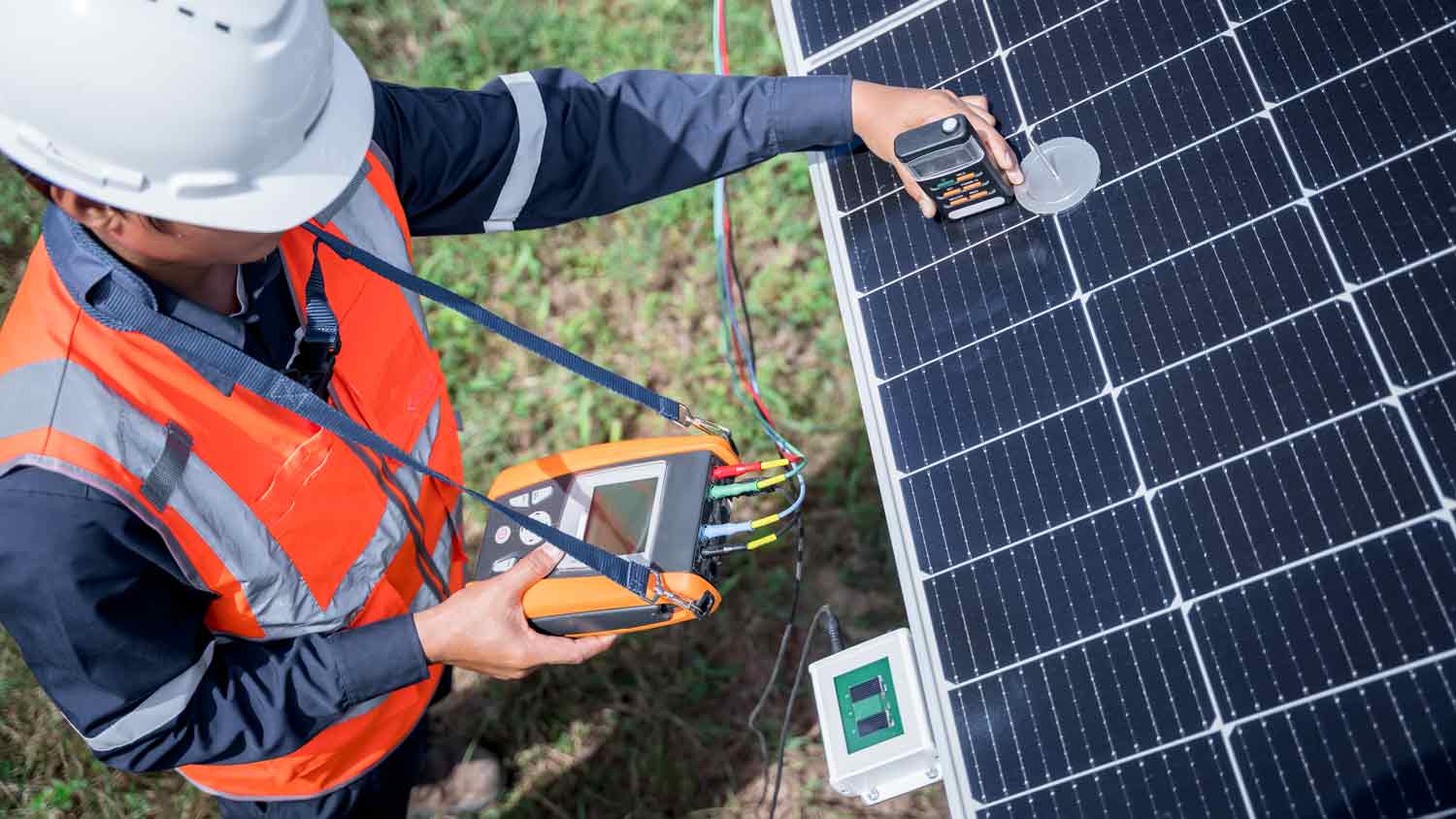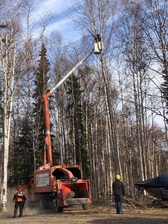
Get matched with top solar panel pros in Kotzebue, AK
Enter your zip and get matched with up to 5 pros
Need a pro for your solar panel service project in Kotzebue, AK?
Verified Reviews for Solar Panel Service pros in Kotzebue, AK
*The Angi rating for Solar Panel Service companies in Kotzebue, AK is a rating based on verified reviews from our community of homeowners who have used these pros to meet their Solar Panel Service needs.
*The HomeAdvisor rating for Solar Panel Service companies in Kotzebue, AK is a rating based on verified reviews from our community of homeowners who have used these pros to meet their Solar Panel Service needs.
Last update on December 13, 2025
Find Solar panel pros in Kotzebue
No results for Solar panel pro in
Try adjusting your search criteria.FAQs for solar panel service projects in Kotzebue, AK
The average cost to install solar panels is around $26,600, and most homeowners pay between $4,500 and $53,000. Keep in mind that these prices don’t consider the federal investment tax credit (ITC), which can effectively reduce those costs by up to 30%. The price you can expect to pay for solar panel installation depends on the size of the system, where you live, the type and brand of panels, and the labor costs. Get price quotes from at least three solar companies in your area to find the best deal.
In most states, solar installers need to be licensed and insured as solar professionals, although some states don’t have specific requirements for installers. You can use our state licensing tool to check if an installer you’re considering hiring holds the proper licensing. No matter where you live, a member of your solar panel installation company must be a certified electrician to connect your panels to your home and the electric grid.
There are a few qualifying questions you should ask a local solar panel company before hiring them:
Will you handle permits for the installation?
Does your total price include the equipment and labor?
How long do you expect the installation process to take?
What kind of workmanship warranty do you include with your installations?
Who should I contact if I have a problem with my system after installation?
Do you install the panels or outsource the work to third parties?
Will you file for solar incentives for me?
In most cases, yes, solar panels are well worth the investment. Going solar with your home’s energy is expensive, but, in most states, the panels will pay for themselves by reducing your electric bills. Solar panels don’t produce greenhouse gasses or other pollutants, meaning you can feel good about using this renewable energy source to power your home. Plus, installing solar panels can boost your home value, helping your profit off your next home sale.
Yes, solar panel installation will require permits. The required permits will depend on where you live, as some states and cities have solar-specific permits, while others only require electrical permits to connect to the grid. In either case, it’s best to hire a reputable solar installer in your area, as a representative should handle all of the necessary permitting for you and will include the cost of the permits in your initial solar estimate.
The Kotzebue, AK homeowners’ guide to solar panel services
From average costs to expert advice, get all the answers you need to get your job done.

Solar battery costs depend on the size of your system, labor, and capacity. Learn how much you could pay for batteries for home solar systems.
 •
•Discover the average solar panel inspection cost, what impacts pricing, and how to save. Get expert tips to keep your solar system efficient and safe.
 •
•Get a detailed estimate of solar farm costs. Learn about average prices, key cost factors, and ways to save when planning your solar farm project.

Solar systems convert the sun’s rays to energy, but do solar panels need direct sunlight to work? Learn how shade and weather impact solar panel production.

Ready to make the switch and join the solar panel homeowner community? Here are 15 key questions to ask solar companies before you seal the deal.

Is your home a good fit for solar panels? It all depends on your roof, sunlight exposure, and energy bills. Use this guide to find out.





